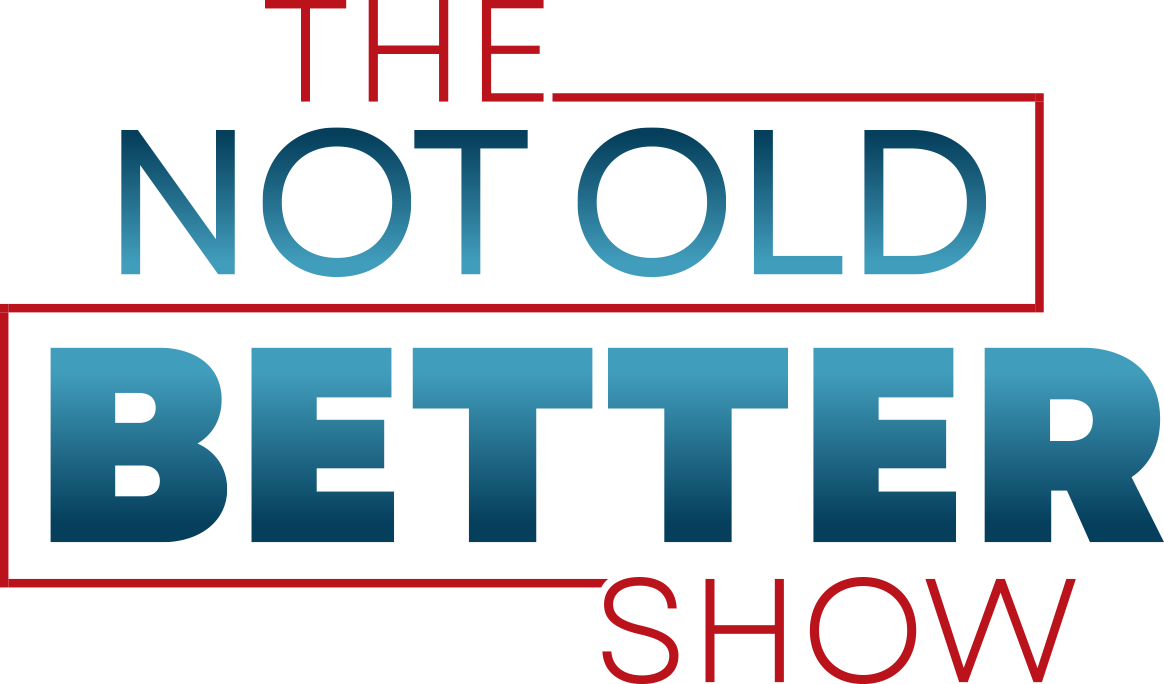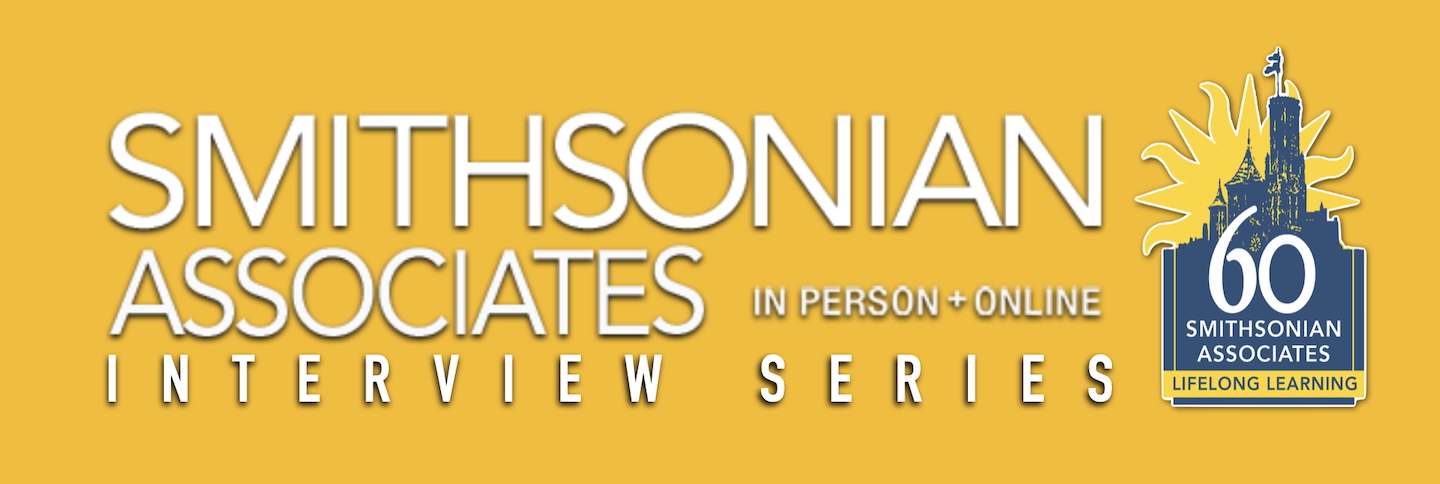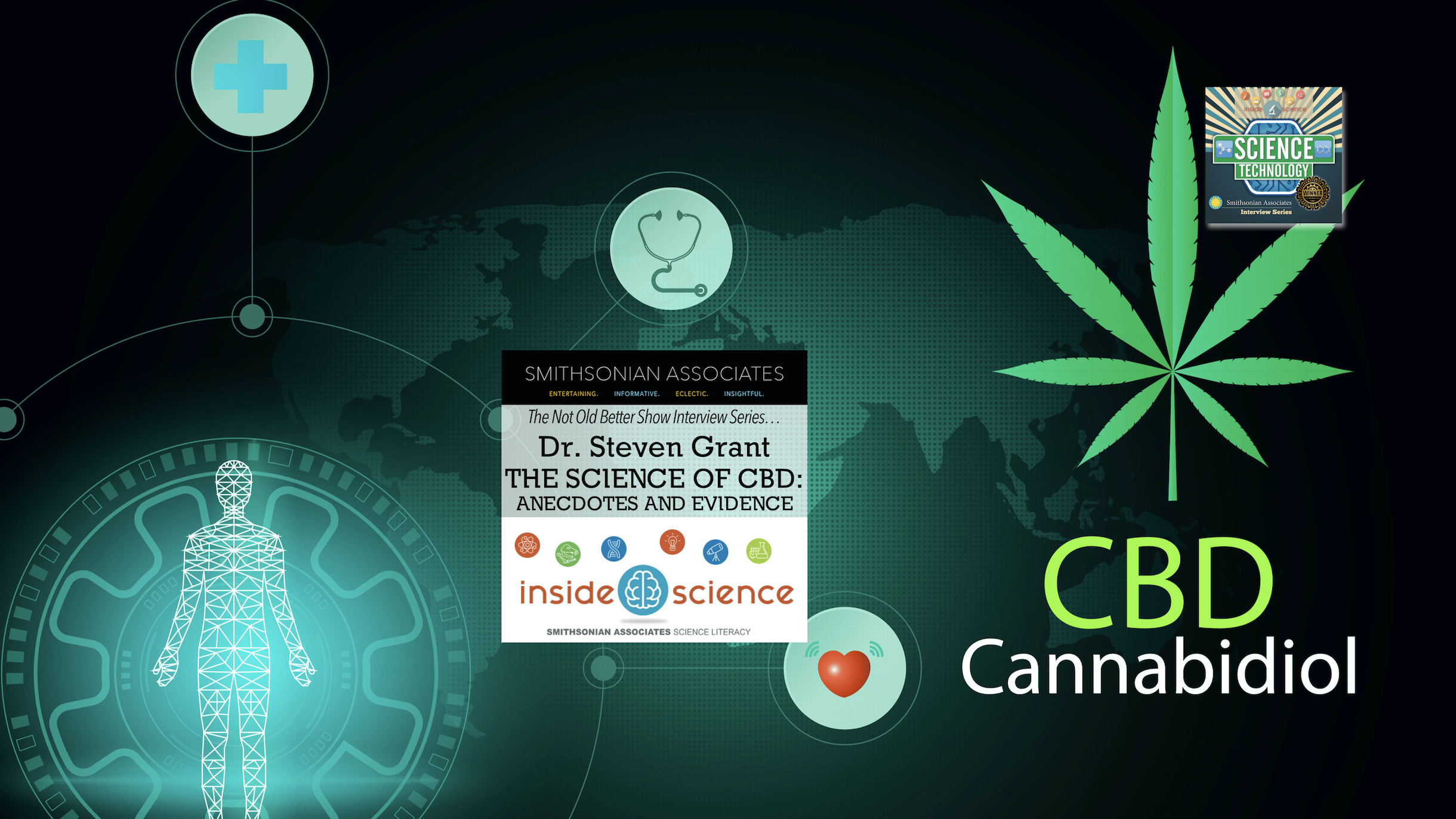The Science of CBD: Anecdotes and Evidence – Dr. Steven Grant
The Not Old Better Show Inside Science Series
Welcome to The Not Old Better Show. I’m Paul Vogelzang and this is episode #427.
As part of our Smithsonian Associates Inside Science Interview Series, our guest today is Dr. Steven Grant. Dr. Steven Grant will be presenting at the Smithsonian Associates, The Science of CBD; Anecdotes and Evidence. More details are available at our web site.
Steven Grant is a neuroscientist at the National Institutes of Health, and we’ll be examining today what the research on cannabidiol, or DBC, has—and more importantly, has not—discovered about this elusive chemical’s potential benefits and risks.
Of the more than 100 related chemicals found in cannabis plants, cannabidiol (CBD) has become almost as well-known as tetrahydrocannabinol (THC), seemingly overnight. Now widely available in retail stores and websites, it has suddenly emerged as a popular consumer product.
But it has been difficult to demonstrate exactly what CBD does. It neither produces a high like THC, nor does it have the same biological actions. And although promoted as a remedy for a wide variety of conditions, only one CBD product has received FDA approval—for the treatment of a specific type of severe childhood epilepsy.
Much remains unknown about the effects, mechanism, long-term consequences and legality of CBD, so please join me in welcoming to The Not Old Better Show.
Dr Grant has a brief disclaimer and then we’ll proceed with our interview.
My thanks to Dr. Steven Grant for his time, expertise and thoughtful preparation in joining me today about a complex subject. My thanks, always, to the Smithsonian team for all they do to support the show. Of course, my thanks to you, our wonderful Not Old Better Show audience. Please keep your emails coming to me at info@notold-better.com. Remember, let’s talk about better. The Not Old Better Show. Thanks, everybody.
More information and ticket details are available here, at Smithsonian Associates:




